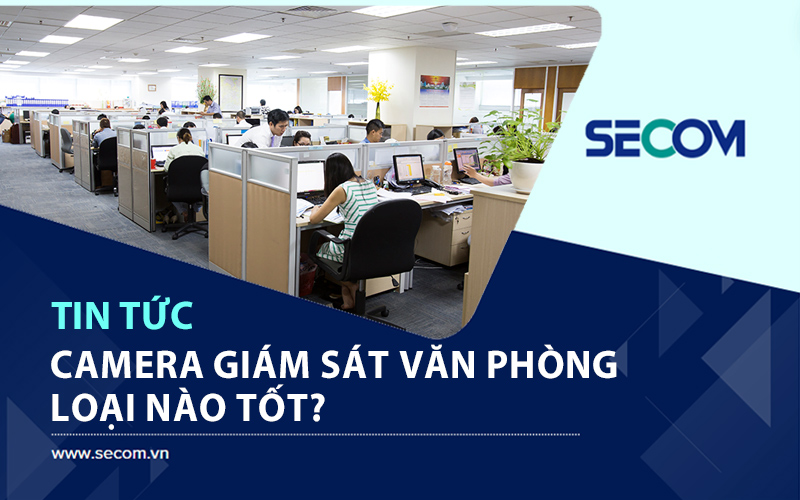- SECOM News
- Oct. 15, 2024
What is a Security Officer? How Do They Differ from Security Guards?
As security increasingly becomes a significant issue, especially in organizations and public areas, the role of security personnel has become indispensable. However, many people still confuse security officers with security guards. So, what exactly is a security officer, and how does their job differ? Let’s explore these details in this article by SECOM.
What is a Security Officer?
Security officers are individuals who take on the responsibility of protecting and maintaining the safety of people, property, and specific areas. Their role is essential in ensuring that all activities run smoothly and safely, particularly in high-risk environments or places where security incidents are likely to occur.
Generally, security officers can work in a variety of sectors, including public spaces like shopping malls, airports, and large events, as well as within private organizations or companies. Their primary objective is to detect and prevent threats, while also handling emergency situations when necessary.
What Do Security Officers Do?
Security officers operate in different environments, each requiring specific tasks and responsibilities. Below is an overview of the common duties that security officers typically undertake to provide a clearer understanding of their role.
Public Security Officers
Public security officers work in areas such as shopping centers, border gates, train stations, bus terminals, and parks. Their job is to ensure the safety of people entering and exiting these areas while complying with security regulations. They also provide information and guidance on the locations, services, and available security measures.
Airport Security Officers
At airports, security officers are responsible for protecting passengers, property, and the flight crew. They perform security checks on carry-on luggage and passengers using equipment such as body scanners, X-ray machines, metal detectors, and airport security gates. Their duty is to prevent dangerous items or weapons from being brought onto airplanes.
Internal Security Officers
Internal security officers work within organizations or companies, tasked with protecting the organization’s assets and information. They monitor security camera systems, manage access control to regulate the entry and exit of employees and visitors, and conduct patrols to detect potential issues in a timely manner. At the end of each shift, they prepare a report on the situation and hand over duties to the next shift.
The Important Role of Security Officers
In modern society, the role of security officers has become increasingly significant. They help maintain order and prevent threats that could endanger people and property. With their presence, individuals feel more secure when participating in activities in public areas or workplaces. Security officers not only monitor and inspect but also respond quickly to emergencies, handle incidents, and ensure compliance with security regulations.
Requirements to Become a Professional Security Officer
To be a successful security officer, one must not only have passion and a sense of responsibility but also meet certain basic and specialized requirements. The standards needed to become a security officer include:
Educational Requirements
While formal qualifications are not always mandatory, many employers prefer candidates with a high school diploma or equivalent. This demonstrates that the applicant has a basic educational background and the ability to follow instructions effectively. For some specialized security roles, higher education or certifications in areas such as criminal justice or security management may be required.
Training Requirements
Security officers typically must complete comprehensive training programs that equip them with the necessary skills and knowledge for the job. These training programs often cover areas such as emergency response, first aid, conflict resolution, report writing, and an understanding of legal regulations related to security. Adequate training prepares security officers to handle various situations professionally.
Skill Requirements
Security officers need to meet several skill requirements, including:
- Physical Fitness: Good health is crucial for security officers, as the job often requires standing for long periods, patrolling large areas, and handling physically demanding situations. A healthy body enables them to perform tasks effectively, react quickly in emergencies, and deal with situations that require physical strength.
- Communication Skills: Strong communication skills are essential for security officers to interact effectively with colleagues, customers, and the public. They need to convey information clearly, minimize conflicts, write accurate reports, and provide necessary assistance. Effective communication helps maintain a safe and secure environment.
- Integrity and Ethics: Security officers must possess a high level of integrity and ethics, as they often deal with sensitive information and have access to critical areas. Trustworthiness and ethical behavior are vital to maintaining the confidence of employers, clients, and the public.
Distinguishing the Difference Between Security Staff and Security Guards
Although security staff and security guards both have the responsibility of protecting and ensuring safety, these two roles have distinct differences in their duties and responsibilities. To understand the differences between these two positions, you can refer to the detailed information in the comparison table below:
| Criteria | Security Staff | Security Guards |
| Definition | Flexible work, monitoring, training, and assigning tasks to security guards. | Usually works at a fixed location, ensuring safety on-site. |
| Functions and Duties | Monitors, trains, and assigns tasks to security guards. | Stands guard, provides information, and guides customers. |
| Training | In-depth, structured training, often consisting of former military personnel. | Basic skills, simple entry tests. |
| Reporting | Reports to management/business owners. | Reports to security staff. |
| Salary and Advancement | Higher salary, more opportunities for advancement. | Lower salary, fewer opportunities for advancement. |
| Scope of Work | Flexible, patrolling within the area. | Fixed at one position. |
Career Opportunities and Advancement Path for Security Staff
The security industry is experiencing robust growth, opening up many attractive career opportunities for those passionate about and committed to the safety of the community. In an increasingly modern society, the need for security for individuals, organizations, and communities is becoming more urgent.
Security staff can work in various fields, including security at buildings, industrial parks, airports, schools, event protection, and many other places. Security service companies, private security firms, government agencies, and various organizations consistently require security staff, especially airport security staff and surveillance system monitors.
The opportunities for advancement in the industry are also broad. By continuously learning and honing their professional skills, particularly in adopting new security technologies, employees can advance to higher positions such as team leader, supervisor, or security manager.
Challenges Faced by Security Staff and Solutions
Security staff often encounter many challenges in their daily work, and identifying and addressing the following difficulties is crucial for maintaining job effectiveness:
- Facing Dangerous Situations: The job of security staff often involves dealing with dangerous situations, especially when working at night. Since criminals typically operate when people are less vigilant, security personnel must be well-prepared both mentally and physically. They need to stay alert and healthy to respond effectively to unexpected situations.
- Difficulty in Using Technology: Lack of familiarity with new technological devices can pose challenges for security staff. To overcome this, they need comprehensive training to become acquainted with and proficient in using modern technological tools, thereby enhancing work effectiveness.
- Disproportionate Salaries: Although the job demands significant responsibility and pressure, the salaries of security staff are often not high. However, this provides an opportunity to gain experience and improve skills. Employees working in larger organizations typically enjoy better salaries and benefits, so aiming for these opportunities can help improve their financial situation.
- Impact of Night Shifts: Working long night shifts can lead to health deterioration and decreased concentration. To cope with this, security staff should maintain a regular exercise routine and improve daytime sleep quality by optimizing sleep conditions.
- Lack of Support Equipment: Insufficient tools such as computers or cameras for remote security monitoring can hinder the ability to detect and respond to unusual situations. Security staff should request support from superiors to ensure they are adequately equipped with the necessary tools for their work.
- Lack of Recognition: Despite the importance of their work, security staff are sometimes not adequately valued. Raising awareness of the importance of security work and demonstrating professionalism can help improve the perception and recognition of their role in society.
- Full Responsibility: Security staff bear full contractual responsibility when incidents occur. To mitigate risks, they must work with focus, integrity, and dedication, ensuring they are always ready to respond effectively to unusual situations.
In conclusion, this article has provided an overview of the roles and work of security staff, along with the challenges and necessary requirements to become a professional in this field. Hopefully, the information above will help you better understand this career and the important factors related to it.

























